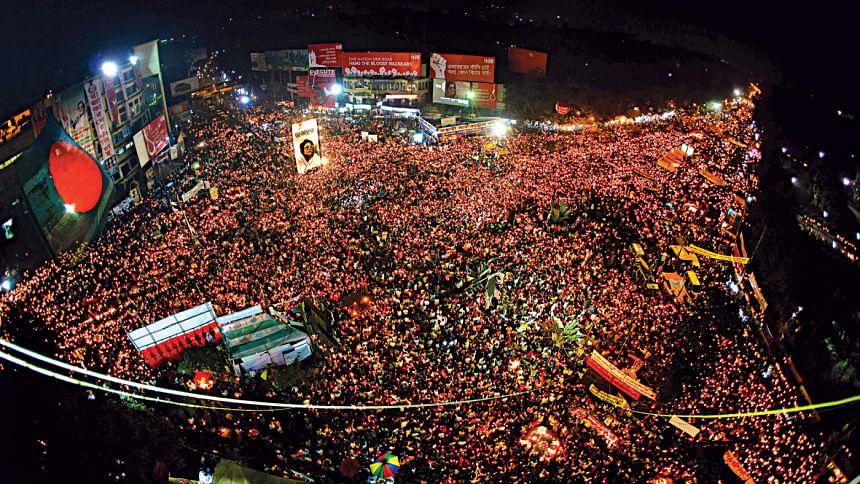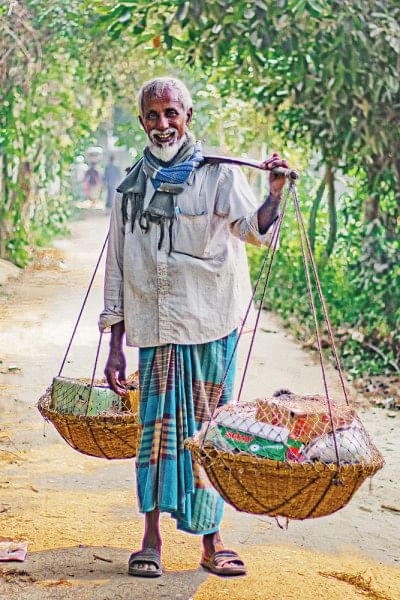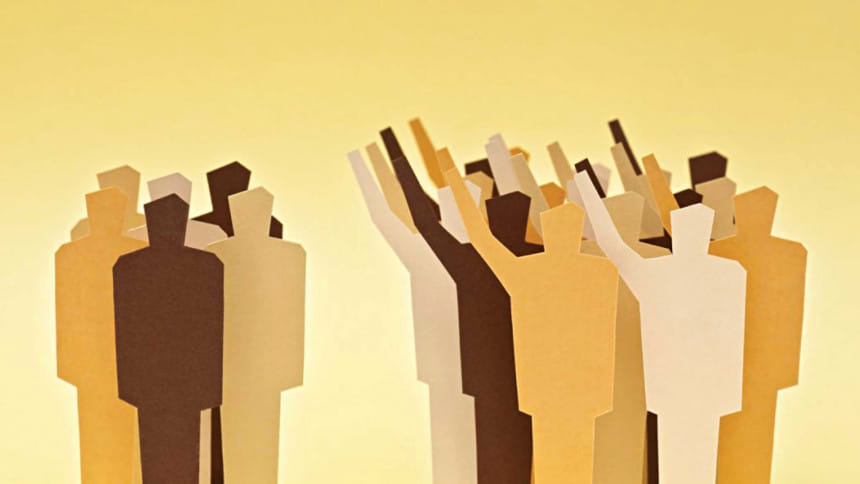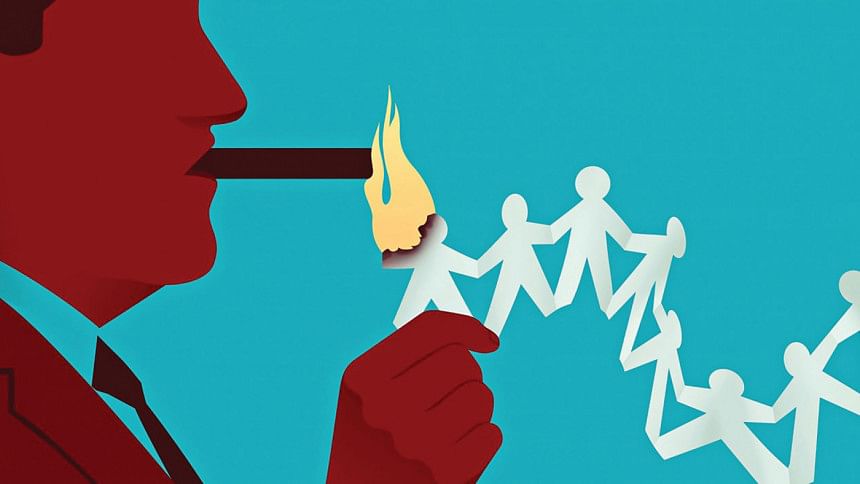Should development and democracy be at odds with each other?


The relationship between democracy and development is a much-discussed issue. It is not so much about the relationship between the two ideas, rather the type of relationship between them. This quest for exploration of the type of relationship has led to a fundamental question, which is whether development leads to democracy or democracy leads to development. But the relationship between democracy and development has been found to be inconclusive. In the literature, there are at least five strands of views on the relationship between democracy and development.
First, countries need development first and once they achieve development, people may have democracy. This argument is based on the assumption that democratic process can become chaotic which does not denote good development. In such a circumstance, governments take decisions ignoring people's opinion but for the benefit of people. Second, the argument that democracy should precede development is based on the experience where indicators on economic and social wellbeing have mostly been better achieved in democracies rather than non-democratic systems. Therefore, the priority of developing countries should be to promote democracy, which would lead to economic development. Third, the view that economic development leads to democracy is based on the idea that when a country reaches a higher income level, then they tend to move towards embracing democracy. Fourth, economic development does not necessarily lead to democracy. Often authoritarian and autocratic regimes tend to show citizens that since economic development could be achieved under their rule, there is no need for democracy, and they very well continue to enjoy the benefits of economic progress. Fifth, there is another view that democracy has no role in development. It basically tells us that politics may influence economic performance of countries. But the type of regime has no role in the economic performance. So, the impact of democracy on economic development is not known. In this finding, democracy and development are two independent situations without having any influence on each other.
While the above conclusions have been drawn from the experiences of several regime types and their economic performances, these studies are flawed on three grounds. First, dataset used in these studies which perform cross-country regression analysis to see the linkages between the two concepts suffer from inadequacy. Despite several attempts to improve the quality of data across the world and global call for improvement of data quality, little progress has been made in case of good quality data. Second, while economic progress can be measured in quantitative terms relatively easily, political performance is a qualitative term, and assigning numbers or weights on it for statistical analysis will always be somewhat challenging.
Third, the existing research has mostly looked at the narrow concept of development while trying to examine its relationship with democracy. They often use growth and development synonymously and ignores the fundamental difference between these two concepts of economic performance. While economic growth is only a measure of annual rate of growth in the gross domestic product (GDP) of a country, development has a larger connotation as its sphere includes social and political indicators. Growth is a narrow concept that only captures the rise in income, development entails a deeper meaning of progress. It is about all-encompassing advancement in human life. Therefore, even with a high growth rate, a country may not be necessarily developed. Only income-based progress looks at income per capita; but ignores the quality of life and non-economic requirements of human beings. Growth-based progress also ignores inequality, distributive justice, and inclusivity. It denies basic rights of human being. Taking into the broader perspective into consideration, the United Nations Development Programme (UNDP) categorises countries based not only on per capita income, but also human asset index and economic vulnerability index. The very idea of "human development" was coined by the UNDP in the context of broadening the dimensions of economic progress so that the aspects of human wellbeing are captured. That is why, in case of Human Development Index, differences become clearer. Though some countries are economically progressing, their inequality is also increasing, and their performance on other aspects of lives is deteriorating.
The conventional debate on the relationship between democracy and development ignores these aspects and is stuck on the Harrod-Domar model of economic growth where economic growth is the function of rate of growth of savings and investment and also productivity of investment. Capital accumulation was considered to be the driver of economic progress. Hence, many scholars in the 1950s and 1960s felt that democracy can obstruct economic growth, and authoritarian government can perform better in terms of that growth. To them, an authoritarian system of government was thought to be more feasible for higher public savings which is needed for higher investment. And higher public savings require higher taxes from people which may be difficult for a democratic government which would review and reconsider before any move that would hurt their constituencies as they come to power through people's mandate.

This debatable relationship between democracy and development led many governments to suitably position their views which is very often inclined towards the first view presented above, that is—development first and democracy later. Intellectuals, in favour of this view, would elaborate those poor countries cannot afford democracy because democracy is about freedom of expression. Democracy is not only about voting but also the right to express opinions on important decisions of the government which impact the lives of citizens. And at times, citizens may not approve a plan by the government, even if the government considers it to be good for the people. So, development cannot be carried out. This view rests on the idea that only the government can think of citizens' wellbeing and the people cannot think of their own benefits. In the name of democracy, they may become unruly and attempt to postpone government decisions. Since political stability is a critical determinant of economic growth, it has to be maintained by suppressing people's opinions. Indeed, all dictators, across the world, assume power with the excuse of bringing back public discipline and making economic progress. They also come to power by pointing out the inadequacies and poor governance of a politically elected government. Ironically, the autocratic regimes get into the same cobweb of corruption and wastage of national resources. In the end, they ruin economies. Examples of such regimes are plenty. Those countries are yet to bounce back from the destruction made by the authoritarian rulers.
In recent times, a section of politicians in Bangladesh has been trying to argue that the poor people need only food to survive and they do not care about the type of regime in the country. Ironically, they forgot the experience of our own political and governance system that we experienced not too long ago. Born as an independent and democratic country, Bangladesh soon went into the grip of the military rule. The country remained under authoritarian rule for over a decade. Economic growth was not stalled; infrastructural progress was not stopped. However, they not only destroyed the political system, but the whole value system in the country. It took years of political movement and loss of valuable lives to get back to the core of Bangladesh's fundamental vision.
Ideally, in a democratic environment, there are better opportunities for economic, social and cultural growth compared to an authoritarian regime. Democracy is also crucial for sustainable development in the long run. Scholars including Milton Friedman argued that economic freedom is inextricably linked with political freedom. Amartya Sen in his famous book "Development as Freedom" argues freedom is both the end and means of development.

By democracy we do not merely mean expressing individual choices by taking part in the electoral process. So, it is not only about voting to elect a government in a country, it is about participatory process in all development efforts of the government of the day. It is about social and institutional transformation where personal growth and welfare are considered as an integral part. Having an improved quality of life which is valued and respected should be a matter of right.
There is also a tendency amongst many of us to cite examples of undemocratic countries as stories of economic success. In doing so, China is cited as an example where the economy has been growing fast even in an undemocratic environment. Singapore is also mentioned as another glaring example of economic success that was possible in an authoritarian system. However, the limitations of those systems are revealed. Corruption of Chinese high-level party officials and inequality of distribution are widely discussed. Worldwide, these two countries have been criticised for suppressing people's voices and freedom. While the leadership of former Singapore President Lee Kuan Yew is highly acclaimed as he transformed a poor country into a developed country only within three decades, the present-day style of state governance which is termed as democracy by Singapore, is not appreciated by many countries and leaders around the world.
Promoting the idea of democracy does not mean that the current democratic governments are perfect. However, it is the not the democratic system but the way it is exercised that has to be blamed. There are various types of democracies practiced by countries—weak democracies, strong democracies, soft democracies, limited democracy, and so forth. But such categorisation seems to be a false one. When we want to achieve development, the all-encompassing aspect of democracy is needed. It cannot be such that people are allowed to vote in the elections but cannot express their opinions on certain government policies and measures. Economic policies are formulated for the benefit of people, so it is only natural that people should have a say on them. A democratic system would allow everyone to express opinions inclusively regardless of class divisions based on power or influence. Then democracy becomes dysfunctional and economic benefits are unequally distributed. Our own experience can vouch for this. Before Bangladesh's independence in 1971 from the West Pakistan, we had seen that, despite economic progress of the then Pakistan, the eastern part of Pakistan, which is now Bangladesh, was deprived of all benefits. The shadow of such democracy was observed in Bangladesh also in the eighties and nineties. Such democracy was dysfunctional without any accountability which benefitted those who were in power and also close to power. So, we should not get swayed by short-sighted propositions which contradict the inherent meaning of both democracy and development.
The hard-earned democracy, impressive economic and social progress of Bangladesh since its independence have to be consolidated and strengthened. The weakness in our democratic system has to be worked on through inclusive political system and people's participation. A lot more needs to be done towards fulfilling the commitment of establishing a just society, as enshrined in the Constitution. Unfortunately, the circle of beneficiary groups created around the political power is becoming larger and stronger day by day. Benefits of growth are being hijacked by them, leaving the larger community behind. High and wilful bank loan defaults, cheating innocent customers through malpractices in the e-commerce sector, corruption in the health sector, poor quality of education, illegal land and forest grabbing, pollution of water bodies, violence against women and reckless killing through road accidents are some of the examples that reflect how these unacceptable practices continue to remain unabated despite the high growth of the country. People's voice is either suppressed or unheard in most cases. That is why the quality of democracy matters. It is not all democracies which can offer better outcomes for their citizens. There is no straightforward relationship between democracy and social welfare. Democratic governments have to undertake deliberate workplan on social welfare issues and distribution of benefits.
But democracy is also about getting the opportunity to take part in determining individual interests. Transparency in resource allocation and its utilisation, accountability of resource management, protection of human rights including freedom of expression—all are components of the democratic package and essential for inclusive development. Hence, the true meaning of democracy should lie in empowering people through enabling their participation in the electoral and development process. Freedom through free and fair democracy is a defining component of a long-lasting development process. The journeys of the highly developed and strong democratic countries vindicate this experience.
In the 21st century, the argument in favour of ignoring democracy for economic development is weak. Development by sacrificing democracy is not possible because democracy is a component of development. Both are essential pre-conditions for human welfare. Creating a dichotomy between democracy and development is misleading. They are inextricably linked with each other—one reinforcing the other.
Fahmida Khatun is Executive Director, Centre for Policy Dialogue (CPD).

 For all latest news, follow The Daily Star's Google News channel.
For all latest news, follow The Daily Star's Google News channel. 



Comments